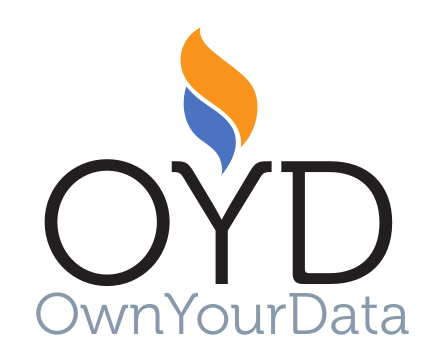The MyData Weekly Digest is a weekly English newsletter from OwnYourData dedicated to reporting within the people-centric approach to personal data management.
Read the “best of” news here or sign up for the MyData Weekly Digest to receive weekly updates.
News
12 November 2021
The Membership Guide
Hackers Are Stealing Data Today So Quantum Computers Can Crack It In a Decade
While they wrestle with the immediate danger posed by hackers today, US government officials are preparing for another, longer-term threat: attackers who are collecting sensitive, encrypted data now in the hope that they’ll be able to unlock it at some point in the future. #future #hacker
How an outbreak became a pandemic
The unexpected health impacts of wearable tech
The European Commission published three work programmes (WPs) for the Digital Europe Programme:
Certified B Corporation
Certified B Corporations are businesses that meet the highest standards of verified social and environmental performance, public transparency, and legal accountability to balance profit and purpose. B Corps are accelerating a global culture shift to redefine success in business and build a more inclusive and sustainable economy. #business #society
Smart city in a post-pandemic world: Small-scale, green, and over-policed
On the face of it, the smart city market is bleeding. In May 2020, Alphabet pulled the plug on Sidewalk Toronto, the company’s ambitious smart city project in Canada. One year later, the company scrapped two other smart city projects in Portland, Oregon, and Kansas City. While the trend of large-scale smart city projects seems to be waning, the markets for smart technology, including AI, facial recognition and the Internet of Things (IoT), are rapidly growing and attracting customers from the public sector. #cities #policy
Exercise your digital rights and find out what your data is used for
Your data is more valuable than you might think. You have the right to know how your data is used. Get started by asking five questions of the companies whose digital services you use. #business #rights #sitra
Do you know where your data is?
When we first began the Me2B Alliance, our central thesis was that technology was unknowable by everyday people. And we held, perhaps, a tacit corollary that industry abused and exploited the natural opacity and unknowability of technology. What we’ve learned, however, over the course of creating our yardstick to measure the behavior of technology, and applying that yardstick to websites and apps, is that there is an appreciable amount of “unknowability” on the part of technology makers as well. #me2b-alliance #tech
Governing health futures 2030: Growing up in a digital world
The Lancet and Financial Times Commission on governing health futures 2030: growing up in a digital world argues digital transformations should be considered as a key determinant of health. But the Commission also presses for a radical rethink on digital technologies, highlighting that without a precautionary, mission-oriented, and value-based approach to its governance, digital transformations will fail to bring about improvements in health for all. #future #health-data
Seoul Will Be the First City Government To Join the Metaverse
Seoul says it will be the first major city government to enter the metaverse. On Nov. 3, the South Korean capital announced a plan to make a variety of public services and cultural events available in the metaverse, an immersive internet that relies on virtual reality. If the plan is successful, Seoul residents can visit a virtual city hall to do everything from touring a historic site to filing a civil complaint by donning virtual reality goggles. #cities #korea #metaverse





